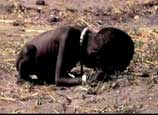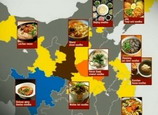
 |
| Zhu Yingren started to draw squirrels since the 1960s and is crowned as "master of drawing squirrels". (China Daily) |
Jin Zhimin, a director at the Fenghuang Mountain Administration in Hangzhou, says he has practised painting based on Zhu's works for years and found it difficult to copy the "look" of the squirrels.
"It is so vivid," he says. "The use of ink is just right, no more, no less." Zhu started to learn traditional Chinese painting when he was 15 at his hometown of Changshu in Jiangsu province. Rebelling against his father's wish of inheriting the family business, he applied for the Hangzhou National College of Art, the predecessor of China Academy of Art, to study Western oil painting.
He stayed in the academy as a teacher after graduation. In 1960s, he was asked to transfer to Chinese traditional flower-and-bird painting, to promote the art form, which was in danger of extinction.
His training in Western oil painting enabled him to have an acute eye of capturing images and remembering them clearly.
As he devoted himself into Chinese traditional painting, bigger challenges befell. During the "cultural revolution" (1966-76), he was not allowed to draw which was a torture.
Now living with his wife in a simple two-bedroom house near the West Lake, the aged painter does not like to talk about sufferings.
"Life is full of unpredictable things - just like the squirrels could be killed by other predators. I will continue to focus on the study of painting no matter how the environment changes," he says.
Wu Changjiang, vice-chairman of China Artists' Association, describes Zhu as a lover of nature. He relates an incident when Zhu went into the mountains to sketch with his students, and a student accidentally destroyed a nest of bird eggs. Zhu was very affected that "a family was destroyed".
"Behind his paintings is a noble heart, full of love for nature and life," Wu adds.

















 Teenage crash victims were talented students
Teenage crash victims were talented students


![]()
